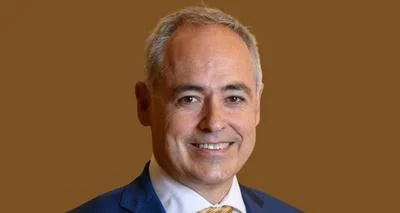Ann Fisher Raney, Chief Executive Officer | Turning Point Behavioral Health Care Center
Ann Fisher Raney, Chief Executive Officer | Turning Point Behavioral Health Care Center
The listed appropriations included grants of $100,000 and $85,000 if two, each designated for programs or services funded by the State of Illinois.
These appropriations represent state-level funding authorized by lawmakers, reflecting what was approved in the budget, not necessarily disbursed. The funds cover only State of Illinois support and exclude federal, local, or other public sources.
Turning Point Behavioral Health Care Center states that its mission is: “Our caring, compassionate team members help clients living with mental illness find ways to experience more fully functioning lives. They also contribute to creating healthier, happier communities where people can be heard, cared for, and respected.”
You can learn more about the organization at its website.
In its most recent IRS Form 990 filing filing for tax year 2024, the organization reported $5,510,420 in total revenue. Of that, $2,437,040 came from government grants including federal, state, or local sources, making up 44.2% of total revenue.
The nonprofit listed $2,616,520 in contributions overall. It also reported $13,308 in non-cash contributions, such as donated goods or services, and $77,893 categorized under other contributions, which may include restricted donations, pledges, or bequests.
At the beginning of 2024, Turning Point Behavioral Health Care Center had $5,331,300 in assets. By the end of 2024, that figure had changed to $5,605,620, indicating a 5.1% growth in overall holdings.
According to its filing, public funding to Turning Point Behavioral Health Care Center increased in the last year. The group received $2,238,080 in government grants in 2023, compared to $2,437,040 in 2024—an increase of 8.9% year-over-year.
However, a Chicago City Wire analysis found that IRS filings frequently contain discrepancies when compared with publicly disclosed government grant reports and budgets.
Turning Point Behavioral Health Care Center is one of hundreds of nonprofits across Illinois that receive substantial support from state taxpayers while also fundraising privately.
In 2025, Illinois lawmakers introduced House Bill 1266, also known as the Department of Government Efficiency (DOGE) Act. The proposal would create a new oversight body within the Office of the Auditor General tasked with identifying cost-saving measures, reviewing agency performance, and advising on audit priorities. If passed, DOGE could bring additional scrutiny and performance evaluation to taxpayer-funded organizations.
According to ProPublica, Illinois has more than 78,000 active tax-exempt organizations, including nearly 60,000 classified as charitable nonprofits. In their most recent IRS filings, these groups reported a combined revenue exceeding $156 billion.
| Fiscal Year | Total Grants/Contracts | Total Taxpayer $$ |
|---|---|---|
| 2024 | 2 | $185,000 |
| Term | Name | Title |
|---|---|---|
| 2024-2024 | Ann Fisher Raney | Chief Executive Officer |
| 2024-2024 | Arbel Hidoo | Director |
| 2024-2024 | Brian Clarke | President |
| 2024-2024 | Candice A Hughes | Director |
| 2024-2024 | Carolyn A Anthony | Director |
| 2024-2024 | David Rosario | Director |
| 2024-2024 | Diana Juarez | Director |
| 2024-2024 | Kathleen Occhipinti | Director |
| 2024-2024 | Kelly Schuler | Chief Operating Officer |
| 2024-2024 | Margaret Kray | Secretary |
| 2024-2024 | Martina Cortez | Compliance & Staff Development |
| 2024-2024 | Maya Devakiamma | Director |
| 2024-2024 | Randall E Roberts | Treasurer |
| 2024-2024 | Scott Kaplan | Vice President |
| 2024-2024 | Vincent D Smith | Director |






 Alerts Sign-up
Alerts Sign-up